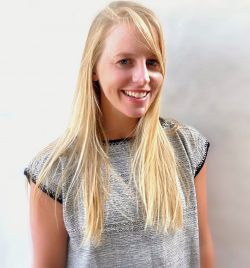October 27: Paige Weber, Assistant Professor, University of North Carolina
website_photo_jul2021.png

"Equity Impacts of Markets for Clean Air"
This paper studies which communities benefit from several federal markets for clean air instituted by the EPA's NOx Budget Program and the Clean Air Interstate Rule. We find that the markets lead to larger emission reductions among power plants located in predominantly white counties. However, due to air pollution transport and the spatial distribution of populations, we find larger reductions in total economic damages from air pollution in predominantly non-white counties. Both of these effects are driven by the spatial distribution of coal capacity. We demonstrate that the pre-existing distribution of firms and technology and atmospheric air pollution transport patterns are the key drivers of heterogeneous impacts across communities.
About the Dr. Weber
Paige Weber uses methods in applied microeconomics and industrial organization to answer research questions in energy and the environment. Her research studies energy and electricity markets, climate change policy, urban economics, distributional impacts of environmental policy, and industry responses to environmental regulation. She is also interested in transportation demand, urban form, and energy efficiency in urban centers.
Dr. Weber is currently an Assistant Professor in the Economics Department at the University of North Carolina at Chapel Hill, with an adjunct appointment in the Environment, Ecology, and Energy Program. She received a Ph.D. in Environmental Economics from Yale University in 2019. She also earned a M.ESc. and a M.Phil. in Environmental Economics from Yale, and a B.A. in Political Economy of Industrialized Societies and Music from the University of California, Berkeley. Before joining UNC at Chapel Hill, Dr. Weber was a postdoctoral scholar in the Environmental Market Solutions Lab (emLab) at the University of California, Santa Barbara. She has professional experiences in the electricity industry, federal government, and non-governmental research organizations, all of which inform and motivate her research agenda.
Links